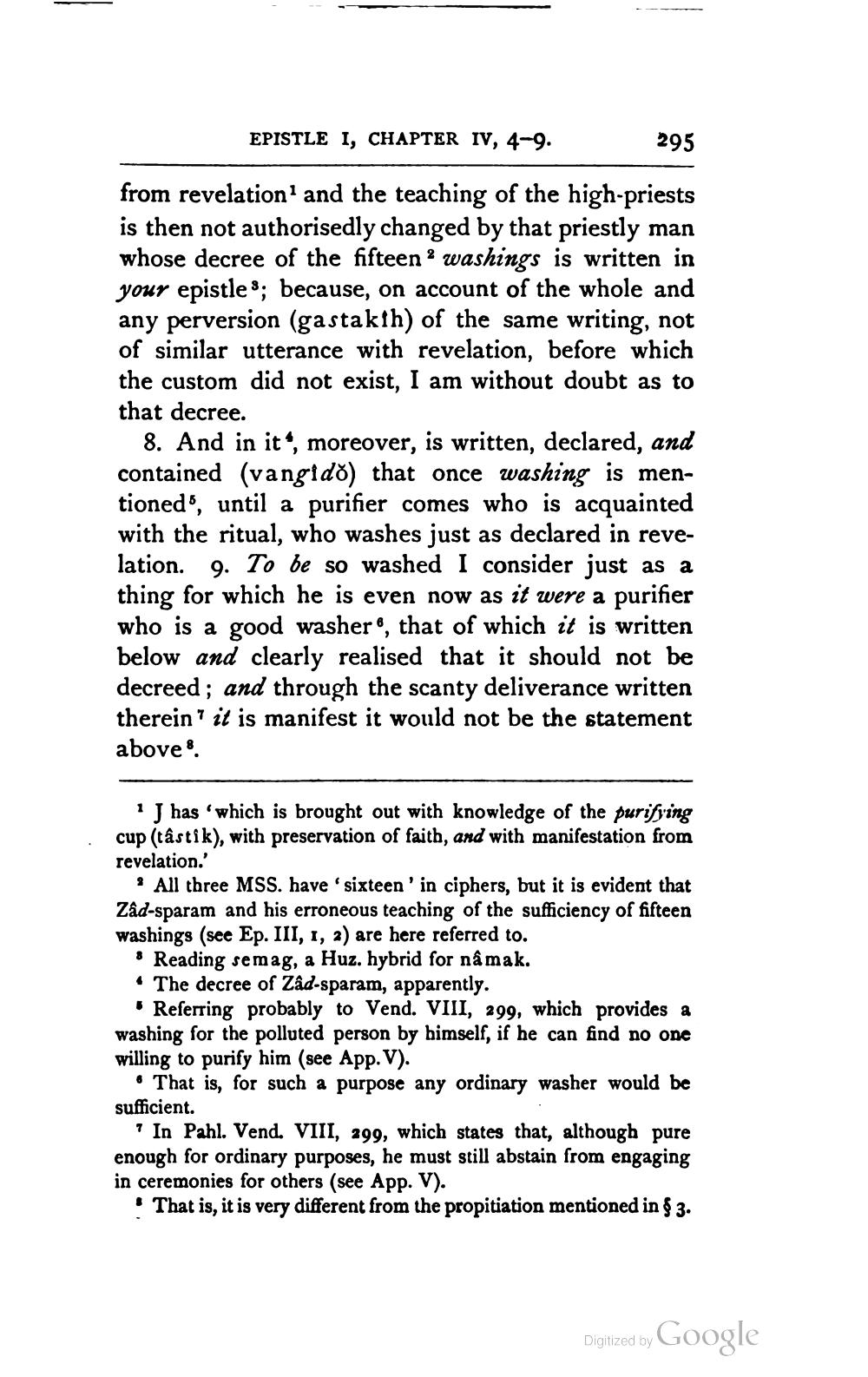________________
EPISTLE I, CHAPTER IV, 4-9.
295
from revelation and the teaching of the high-priests is then not authorisedly changed by that priestly man whose decree of the fifteen ? washings is written in your epistles; because, on account of the whole and any perversion (gastakih) of the same writing, not of similar utterance with revelation, before which the custom did not exist, I am without doubt as to that decree.
8. And in it, moreover, is written, declared, and contained (vangido) that once washing is mentioned", until a purifier comes who is acquainted with the ritual, who washes just as declared in revelation. 9. To be so washed I consider just as a thing for which he is even now as it were a purifier who is a good washer°, that of which it is written below and clearly realised that it should not be decreed; and through the scanty deliverance written therein' it is manifest it would not be the statement above 8.
* J has which is brought out with knowledge of the purifying cup (tâstik), with preservation of faith, and with manifestation from revelation.'
* All three MSS. have sixteen 'in ciphers, but it is evident that Zad-sparam and his erroneous teaching of the sufficiency of fifteen washings (see Ep. III, 1, 2) are here referred to. * Reading semag, a Huz. hybrid for nâmak.
The decree of Zad-sparam, apparently.
Referring probably to Vend. VIII, 299, which provides a washing for the polluted person by himself, if he can find no one willing to purify him (see App. V).
• That is, for such a purpose any ordinary washer would be sufficient.
* In Pahl. Vend. VIII, 299, which states that, although pure enough for ordinary purposes, he must still abstain from engaging in ceremonies for others (see App. V).
. That is, it is very different from the propitiation mentioned in $ 3.
Digitized by Google




